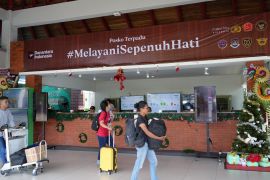Jakarta (Antara Bali) - Former Senior Deputy Governor of Bank Indonesia Miranda Goeltom said the level of success in the tax amnesty policy is a proof of the public confidence in the government.
The government already earned Rp97.2 trillion in redemption from its tax amnesty program from July to the end of the first period of the program on Sept 30, 2016 or more than 50 percent of the target of Rp165 trillion set for the program to last until March 31, 2017.
The first period is yet to continue with the second period from Oct 1 to Dec. 31 and the last period program from Jan. 1 to March 31 in 2017.
"If you win trust your program would work. The factor of (Finance Minister) Sri Mulyani (returning to Indonesia to retake her former position) contributed considerably to the trust for the approach she used in explaining tax amnesty removed all hesitation and worries among the tax payers," Miranda said in a discussion at the Center for Strategic and International Studies (CSIS), here on Monday.
Sri Mulyani was finance minister under the Government of President Susilo Bambang Yudhoyono, but in June 2010 she left the post and became Managing Director of the World Bank following political controversy over the Century Bank scandal.
Miranda said the public trust, tax base and fulfillment of tax obligation developed in the process of the tax amnesty program, is much more important than the amount of redemption earned by the state.
"Tax amnesty is a test of how our country would grow. Without public trust in the government, I think we have no where to go," she said.
As for the repatriated fund reaching Rp137 trillion by Sept. 30, 2016 , Miranda said the use of the fund would depend much on the government, whether to directly invest it or use for sovereign wealth fund (SWF) which would have positive impact on the structure of state revenues.
According to the International Monetary Fund (IMF), SWF is a special investment fund made or owned by the government to control foreign assets for long term purposes.
Singapore and Malaysia are already ahead in the management of SWF respectively through Temasek Holdings and Khazanah Nasional.
However,Miranda said, SWF management must be handled by highly credible sate agencies having clear vision.
"This I think is the biggest challenge. If institution like Temasek and Khazanah is not yet available in Indonesia, the fund from the tax amnesty program could certainly be used for investment by the government," Miranda said.(WDY)




